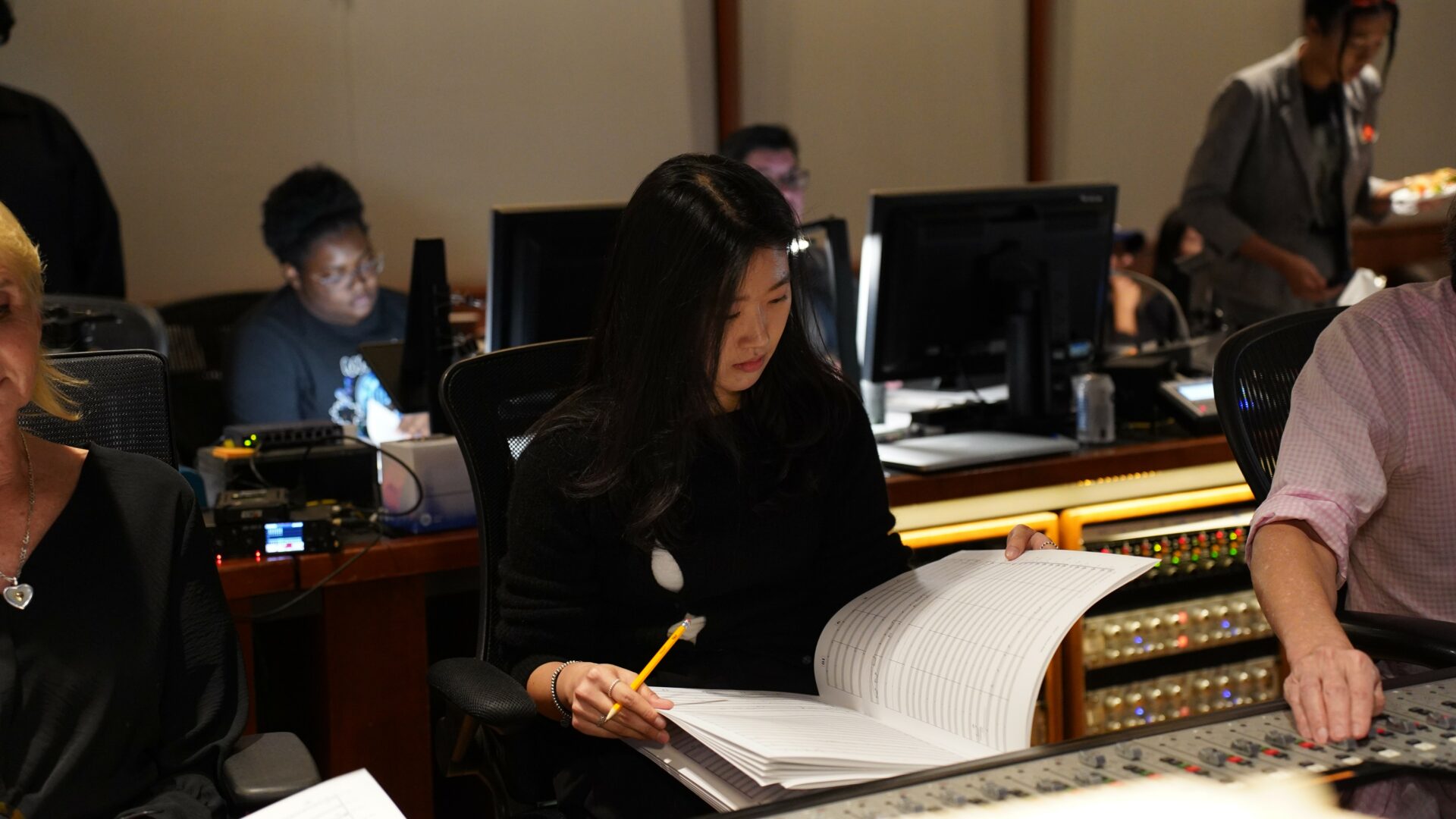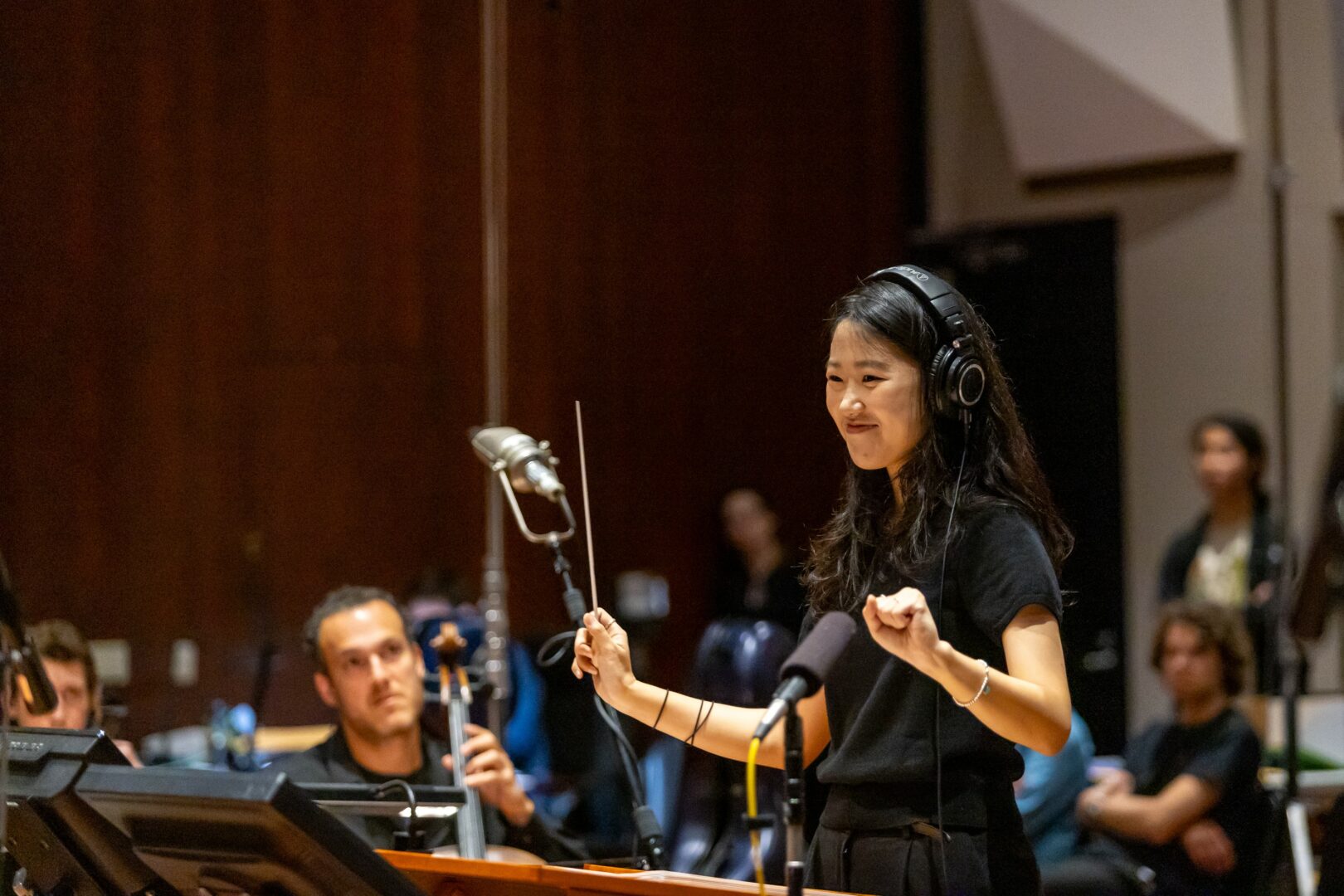We caught up with the brilliant and insightful Sunyou Kim a few weeks ago and have shared our conversation below.
Sunyou, thank you so much for taking the time to share your lessons learned with us and we’re sure your wisdom will help many. So, one question that comes up often and that we’re hoping you can shed some light on is keeping creativity alive over long stretches – how do you keep your creativity alive?
I often find inspiration through everyday moments—what I see, hear, read, and especially through people I spend time with. One moment that recently sparked a piece I’m working on happened while doing a puzzle with friends.
Each of us had our own puzzle, but some pieces got mixed up. I was convinced one piece belonged in mine, and I even tried forcing it in, almost reshaping it in my mind so it would fit. But no matter how hard I tried, it just didn’t belong. Later, we realized it was actually from my friend’s puzzle, and there, it fit perfectly.
That moment really stayed with me. It reminded me of how life works sometimes. We try to make something fit into our world, into our plans, but it might be meant for somewhere else — where it naturally belongs. That idea became the foundation for a piece I’m currently writing, called Puzzle.
These kinds of quiet but meaningful experiences are what keep my creativity alive.

Let’s take a small detour – maybe you can share a bit about yourself before we dive back into some of the other questions we had for you?
I’m a composer for visual media, working across film, television, games, and other storytelling formats. What excites me most about this work is the way music can express emotions and ideas that go beyond words. I’m drawn to those subtle, in-between moments that feel too complex or quiet to explain but can be deeply felt through sound.
My approach is always rooted in empathy and storytelling. Whether I’m scoring an emotional drama or building tension in a thriller, I focus on finding the sound that resonates most honestly with the scene. I enjoy experimenting with different textures, from full orchestral arrangements to delicate, minimal cues, and discovering what each project uniquely needs.
Professionally, I’m continuing to grow through collaborations with directors, producers, and musicians who share a similar passion for thoughtful storytelling. I’m especially interested in projects that explore human complexity and emotional depth, and I’m always looking for meaningful ways to contribute through music.
At the heart of everything I do is the hope that my music can offer someone a moment of connection, reflection, or quiet comfort, the same way so many others’ work has done for me.
Looking back, what do you think were the three qualities, skills, or areas of knowledge that were most impactful in your journey? What advice do you have for folks who are early in their journey in terms of how they can best develop or improve on these?
Looking back, I’d say the three most impactful things in my journey have been emotional sensitivity, storytelling instinct, and the ability to keep learning.
First, emotional sensitivity has been essential — not just in writing music, but in understanding people. Music is deeply connected to how we feel, and being able to listen closely, both to others and to myself, has helped me create music that feels honest.
Second, understanding storytelling has shaped the way I compose. Whether I am working on a film, a game, or a short animation, I try to understand the emotional arc and what the scene truly needs. Music is not just about sound. It is about intention.
Lastly, I have learned that being a lifelong student is key. There is always more to learn, and staying curious has helped me grow. From orchestration and harmony to new tools and technologies, I try to stay open to learning without feeling pressured to be perfect.
To those just starting out, I would say stay curious, stay kind, and stay honest. Focus on making music that moves you first. The rest will follow.
What would you advise – going all in on your strengths or investing on areas where you aren’t as strong to be more well-rounded?
I think it is important to know your strengths and lean into them, but not to the point of ignoring everything else. Our strengths are often where our passion and natural voice live, and developing them deeply can give us a strong sense of direction and confidence.
At the same time, I have learned that improving areas I am less confident in has opened up new creative paths. For example, I used to avoid sound design and technology-related tasks because I thought they did not suit me. But once I started learning them out of necessity, I realized they could actually support my musical voice in meaningful ways. It made my work more complete and more independent too.
So for me, it is not either or. I believe in going deep with what feels most natural to you, while also staying open to learning what might feel unfamiliar. Sometimes, your weaker areas are just undiscovered parts of your voice.
In the end, I think growth happens at the edge of comfort, not in abandoning who you are, but in expanding what you are capable of expressing.
Contact Info:
- Website: https://play.reelcrafter.com/BMYgrE9xTyq-ikXef7MB-A
- Instagram: https://www.instagram.com/suny0u_?igsh=NTc4MTIwNjQ2YQ%3D%3D&utm_source=qr
- Youtube: https://www.youtube.com/@suny0u_97
Image Credits
photo : Christian
so if you or someone you know deserves recognition please let us know here.




